Click here to download the video transcript (docx)
A World of War -power, ego and little leadership
 Brian Rowan is a former BBC correspondent in Belfast and an author on the peace process.
Brian Rowan is a former BBC correspondent in Belfast and an author on the peace process.
This is the latest publication drawn from the thousands of pieces of information that I have logged within my archive; the notes, diaries, tapes, statements and reflections that when read together help us to better understand that fight to escape the wars and the ‘Troubles’ of this place.
The archive follows the steps into the rooms and talks and negotiations in which peace becomes a possibility and then a reality.
As I write, the World headlines are the stories of the Hell of Gaza, and the constant references to war involving Russia and Ukraine, Israel and Iran and the bombs of the US; stories also of ceasefires and broken ceasefires, of power and ego masquerading as leadership.
Within these pages, you will read the words of a Palestinian American Aziz Abu Sarah, someone who has been involved in peacebuilding in a period spanning a quarter of a century and more.
Recently I met him in Belfast, and on the pages of this work, you will read his words about how “we often become trapped in our own perspectives, unable to see a way out of conflict”.
“I come to Ireland to remember that peace is possible,” he writes.
That sentence is a reminder that our peace is often better appreciated from outside of us, and a reminder also of what has been achieved.
This publication builds on our previous works - ‘25 Pieces’ and ‘Impossible Peace’ both of which are included in Ireland’s prestigious ‘100 Archive’.
Our focus now is the period 2005/10, and what happened after the IRA decision to end its armed campaign at 4pm on Thursday, July 28th 2005.
It takes us into the stories of demilitarisation, an earthquake inside the loyalist community, arms decommissioning, remarkable decisions on policing, the achievement of the Paisley-McGuinness government, the dissident republican threat and the stories of leadership and the lack of such in today’s world.
This publication is shaped in the creative thinking of Ciaran Hurson @hallerclarkehurson.com
Photography is by MT Hurson.
And the funding that made it possible came from the Open University and we thank its National Director in Ireland John D’Arcy.
This work is also available on the university’s OpenLearn website; there as a contribution to our understanding of some of the key moments in our recent history.
Foreword - John D'Arcy
 John D’Arcy - Director of The Open University in Ireland
John D’Arcy - Director of The Open University in Ireland
Two decades have passed since the momentous events described in this book and its accompanying OpenLearn website. Our collective memories of those times will have been made with press and media reports back then. This new curation, based on Brian Rowan’s personal archive of material and new reflections from people close to the interlocking developments from 2005 to 2010 brings fresh insights to the complexity and dynamics of a pathway to peace.
For The Open University, our partnership with Brian Rowan on this, and previously ‘Impossible Peace’ in 2024, builds on our 2019 ‘Time To Think’ digital archive and other works focussing on the Good Friday Agreement.
Huge thanks to Brian Rowan, Ciaran Hurson, Marie- Therese Hurson and Esther Haller Clarke and to my Open University in Ireland colleagues, Tara Craig and Professor Adrienne Scullion and Dr Philip O’Sullivan from the Faculty of Arts and Social Sciences.
 Belfast republican Séanna Walsh - one of the longest serving IRA prisoners - reads the order that the armed campaign will end at 4pm Thursday, July 28th. All units were instructed to dump arms.
Belfast republican Séanna Walsh - one of the longest serving IRA prisoners - reads the order that the armed campaign will end at 4pm Thursday, July 28th. All units were instructed to dump arms.
 Handwritten note from Séanna Walsh. See details below for full transcript.
Handwritten note from Séanna Walsh. See details below for full transcript.
Text transcript
Signature: Séanna Walsh
1 July 2025.
Context is all, I suppose, so when I was asked to consider reading an IRA statement to not only comrades and friends, but to the world's media, I had to work my way through it.
The political and peace process had reached a critical juncture. Marking time wasn't, isn't an option. So, initiatives have to continuously be taken to move us forward.
I grasped the enormity of it immediately. I sat my wife and teenage daughters down - mindful that my actions would impact on their lives too and explained what I was about to do. They were supportive, the girls maybe not realising the importance of it, Sinéad totally behind it.
For the army to leave the stage it had to do so on its own terms, therefore in moving into a new era we had to do so boldly.
The reading of the statement was a part of all that.
 How the IRA statement of July 2005 changed thelandscape - former republican prisoner and later Stormont MLA Rosie McCorley shares her thoughts.
How the IRA statement of July 2005 changed thelandscape - former republican prisoner and later Stormont MLA Rosie McCorley shares her thoughts.
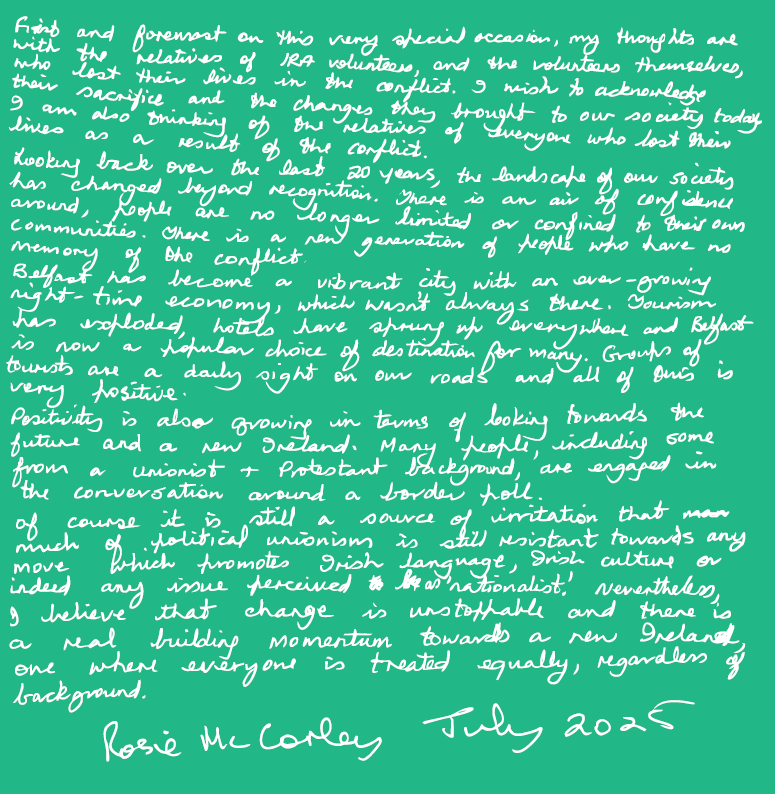 Handwritten note from Rosie McCorley. See details below for full transcript.
Handwritten note from Rosie McCorley. See details below for full transcript.
Text transcript
First and foremost on this very special occasion, my thoughts are with the relatives of IRA volunteers, and the volunteers themselves, who lost their lives in the conflist. I wish to acknowledge their sacrifice and the changes they brought to our society today. I am also thinking of the relatives of everyone who lost their lives as a result of the conflict.
Looking back over the last 20 years, the landscape of our society has changed beyond recognition. There is an air of confidence around, people are no longer limited or confined to their own communities. There is a new generation of people who have no memory of the conflict.
Belfast has become a vibrant city, with an ever-growing night-time economy, which wasn't always there. Tourism has exploded, hotels have sprung up everywhere and Belfast is now a popular choice of destination for many. Groups of tourists are a daily sight on our roads and all of this is very positive.
Positivity is also growing in terms of looking towads the future and a new Ireland. Many people, including some from a Unionist + Protestant background, are engaged in the conversation around a border poll.
Of course it is still a source of irritation that much of political unionism is still resistant towards any move which promotes Irish language, Irish culture or indeed any issue perceived as 'nationalist'. Nevertheless, I believe that change is unstoppable and there is a real building momentum towards a new Ireland, one where everyone is treated equally, regardless of background.
Rosie McCorley July 2025
Download the archive (PDF, 37MB)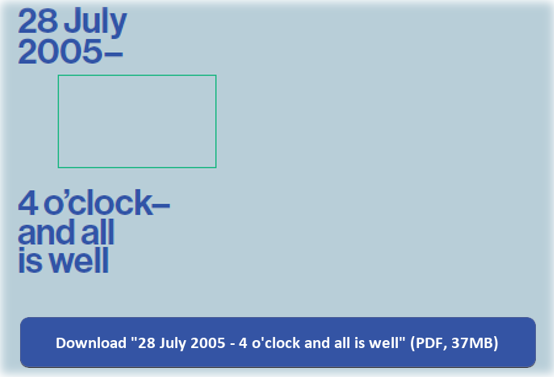
_clone.jpg)
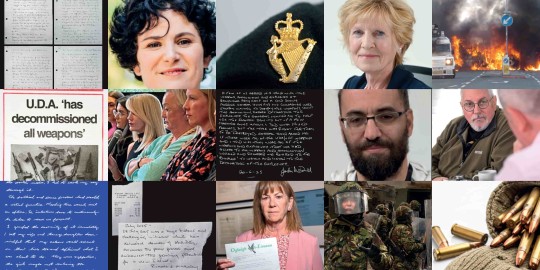
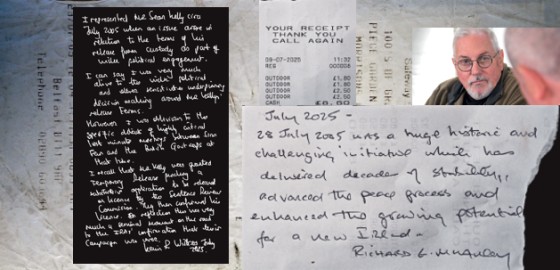
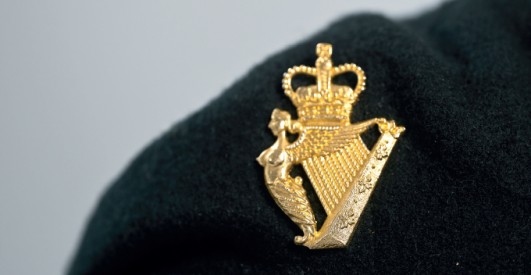
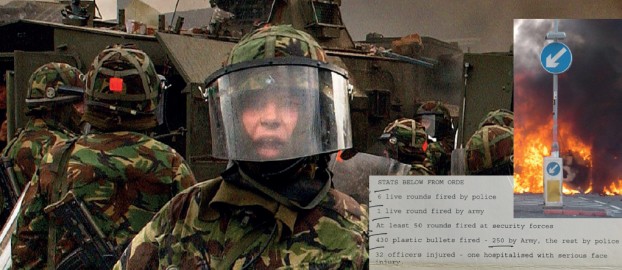
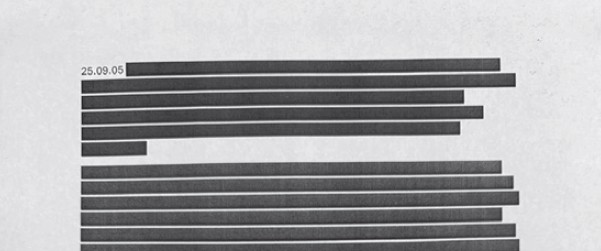
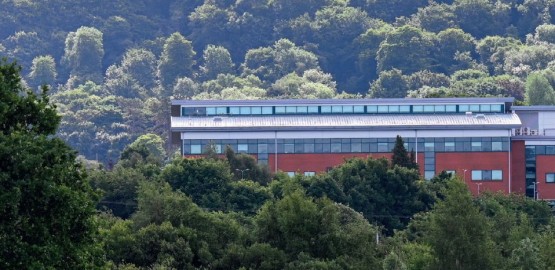
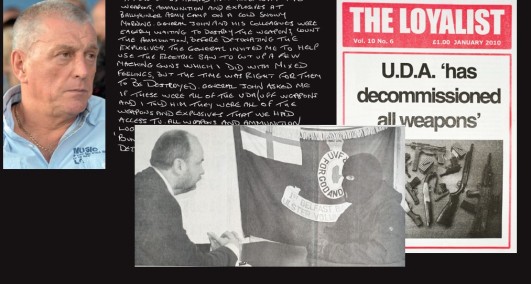
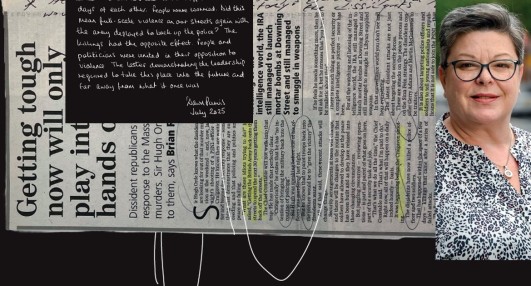
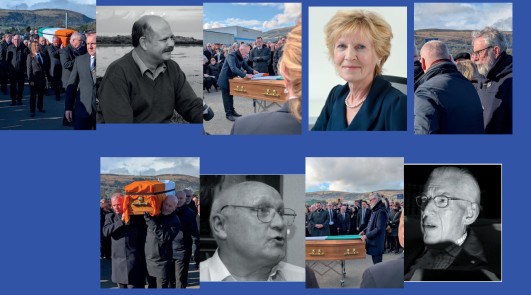
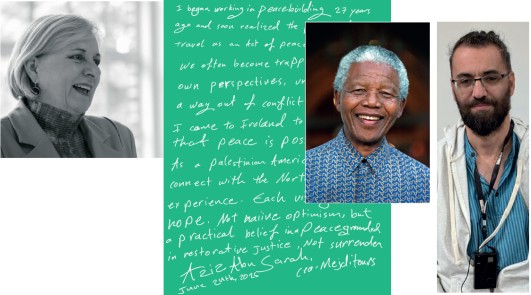

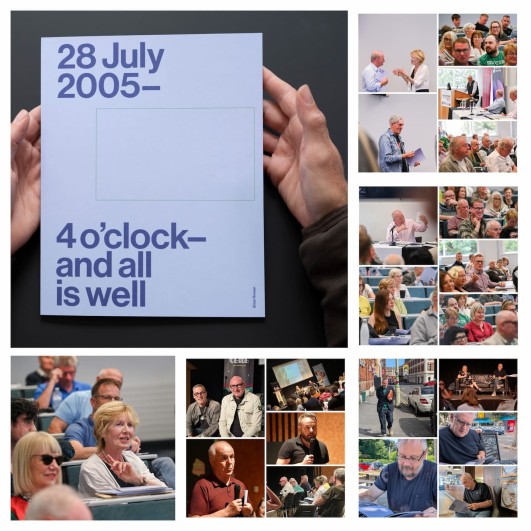

Rate and Review
Rate this article
Review this article
Log into OpenLearn to leave reviews and join in the conversation.
Article reviews